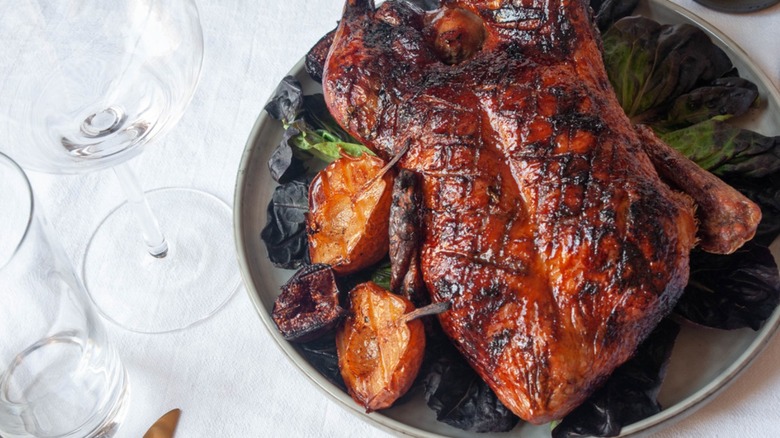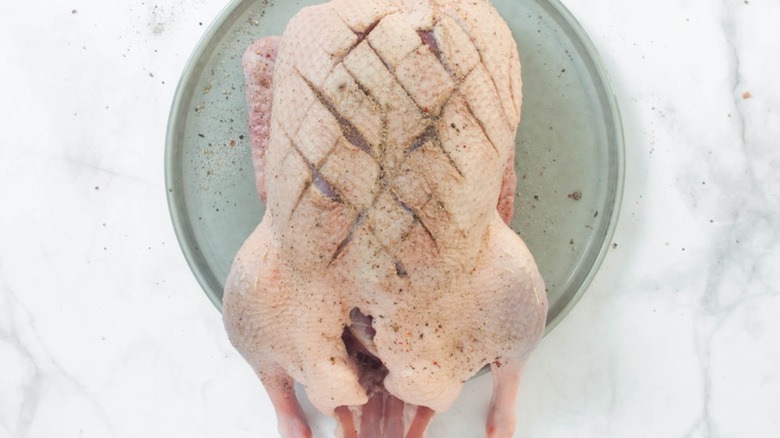The Right Way To Score Duck Meat Before Roasting
Roasting a duck can be an intimidating undertaking, especially if you're new to it. A notoriously fatty bird, duck can run the gamut of either being far too greasy, or far too dry. There is a fine line to play when it comes to getting everything right on a duck roast, and one of the keys to success is making sure you are scoring the skin the correct way.
In Tasting Table's recipe for crispy roasted duck, we score the duck at an angle using a sharp paring knife. A paring knife is small and offers an excellent amount of control, which is important when it comes to scoring because any slip-ups could negatively affect the roast.
While it is ideal to work with a sharp knife that will easily slice through the skin, you don't want to cut the skin too deeply. Instead, focus on the skin and be sure you're not piercing the meat as you make your cuts. Then, turn the duck 45 degrees and score it again to create a crosshatch pattern. You should also trim away any remaining fat inside the cavity and give the duck's legs a good score as well. Creating the crosshatch pattern opens up the skin, allowing subsequent seasonings to get through and make contact with the meat. This, in turn, leads to a more flavorful bird.
Why scorning leads to crispy skin
Scoring a duck is much more than just a decorative touch or avenue for flavor. It serves the additional, and crucial, purpose of rendering fat. It's the skin of a duck that contains nearly all of its fat. By cutting it, you create an avenue for the fat to escape. If you don't score, the fat can't go anywhere. It will end up inside of the meat. While this keeps the bird from drying out, too much fat leads to a very greasy, and not very tasty, outcome.
Don't think, however, that because scoring allows fat to leave the bird the meat is going to dry out. The fat rendering through the scoring channels melts into the meat just enough to keep it moist.
Another big reason you score your duck is for excellent crispy skin. The rendering fat lubricates the skin and cooks off as the duck is roasting, almost like self-basting.
Though there are many other steps that go into getting a great roasted duck, the scoring might just be the most crucial. If other parts of the equation go wrong, a good scoring will, at the very least, ensure that your bird does not turn out overly greasy or too dry. It's a relatively short task that goes a long way toward a good end product.

